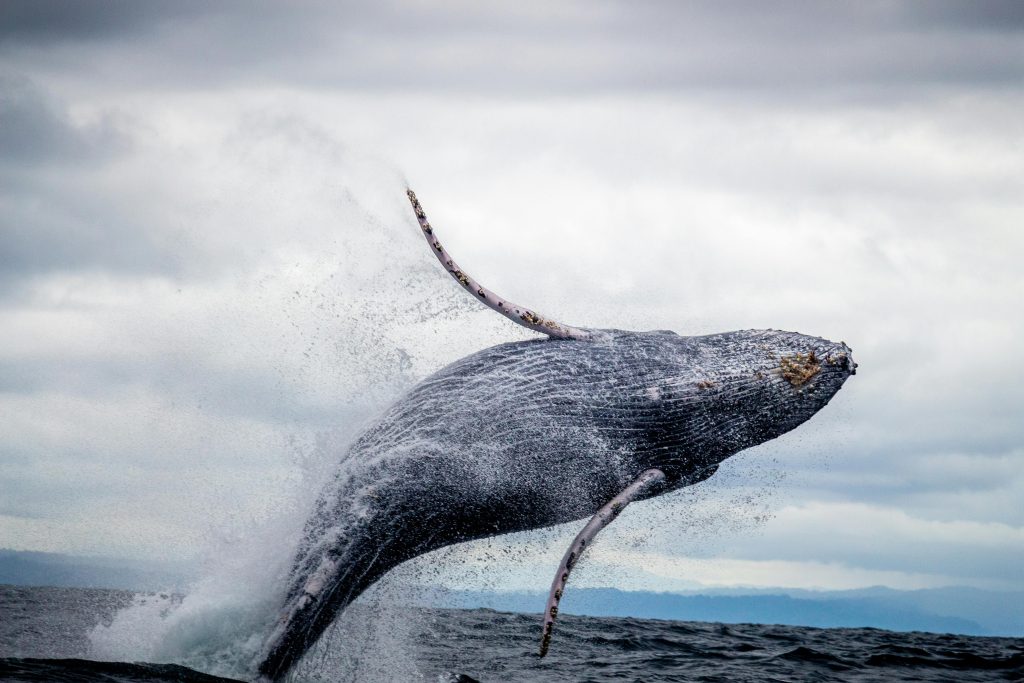Seeing some of the largest marine creatures in the world in their natural environment is possible through whale watching. But these tours have an influence that goes beyond the excitement of seeing whales. In an effort to save these amazing creatures and their environments, whale watching has emerged as a major force behind marine conservation initiatives. Here are a few reasons why your whale-watching trip is helping its way to the conservation of some beautiful animals.
Raising Awareness and Inspiring Action
Whale-watching tours seem to be an opportunity to spread the word about struggling marine life. A common source of education for visitors is about whale behavior, migratory patterns, and the problems that whales face in their environments. Learning about things related to ocean pollution and noise disturbance makes you realize why ocean life is important. The educational aspect of this also encourages participants to lead eco-friendly lives and support conservation programs. Most of the time, firsthand experience increases an individual’s likelihood of subsequently advocating for marine conservation, which can pave the way for other awareness or policy changes that may also help protect the environment.
Funding Marine Conservation Efforts
The funds taken from whale-watching tourism tend to be used to support marine conservation efforts. The ticket fees for whale watching mostly go toward research and preservation programs intended to save whale populations and their habitats. The funds that were collected helped to track whale health, population size, and migration routes. But they also help in activities that prevent ships from striking them, become entangled in fishing gear, or destroy habitat. More money in the pockets of people who are researching and protecting whales and even building a sustainable model for conservation can come from supporting whale-watching tours.
Supporting Local Economies and Sustainable Tourism
Tours of whales are an attraction for coastal communities where whale-watching tourism supports the local economy as a sustainable tourism practice that is beneficial to preserve and balance environmental preservation with economic growth. Whale-watching companies that follow such guidelines make for responsible interaction with marine life and have a minimal footprint. It is this support that helps such companies to carry on as eco-friendly as possible. Tours that prioritize conservation and sustainability make a difference, because it rewards practices that safeguard whale habitat and the interests of those local communities that rely on tourism income.
Contributing to Scientific Research
Tours also are a mainstay of supporting the scientific efforts of researchers because so many companies work together with them in gathering data on whale populations and behavior as well as heath. However, the information gathered allows scientists to more clearly understand how and what whales migrate, feed, and breed. This information is necessary for policies that could help safeguard these species from dangers like climate change and human intervention. For example, humpback whales in the Pacific are studied in Hawaii’s Kauai whale watching areas, where researchers get a consistent opportunity to see whales through their tours. The partnerships between tour operators and researchers not only bolster conservation efforts and give insight into whale populations but often involve researchers in what tour operators are doing.
Protecting Ecosystems and Biodiversity
In their importance to the health of the oceans, whales are of key importance. Through supporting whale watching tours, you ensure that these ecosystems and the biodiversity they hold can be preserved. Krill and all its small marine species are eaten by whales, helping whales not only to regulate the food chain but also to help promote healthy fish populations. And that movement through the ocean helps distribute the nutrients that are beneficial to phytoplankton, an important part of the marine food web. Also, protecting whale populations means protecting the biodiversity of an ecosystem. For maintaining balance in a marine environment, whale watching is key for this.
Conclusion
Your participation helps pay to implement conservation projects, facilitate sustainable tourism, fund scientific research, and fight for the protection of marine ecosystems. Moreover, this experience not only enlightened you to see nature near but it is also one of the most major things keeping it alive for the future generations. When you take whale-watching tours that are responsible and eco-conscious, you are contributing to a global attempt to protect marine life as well as the balance of our oceans.
Author Bio
Hi, my name is Halley Jones. I’m a freelance content writer and guest author with a passion for crafting engaging and informative articles on a variety of topics. I have 5 years of experience in the industry and know how to create content that resonates with readers. In my spare time, you can find me hiking, trying out new recipes in the kitchen, or curled up with a good book.






